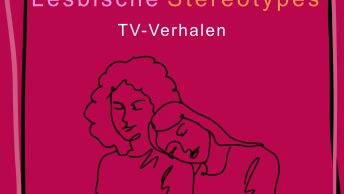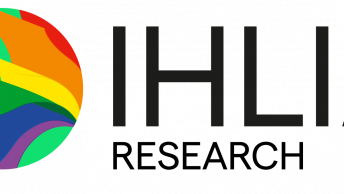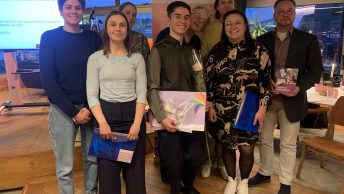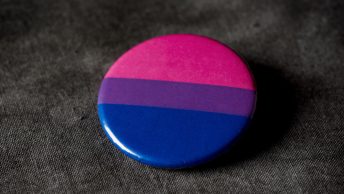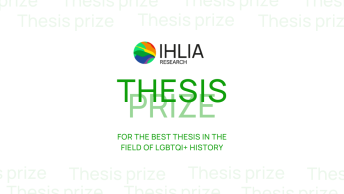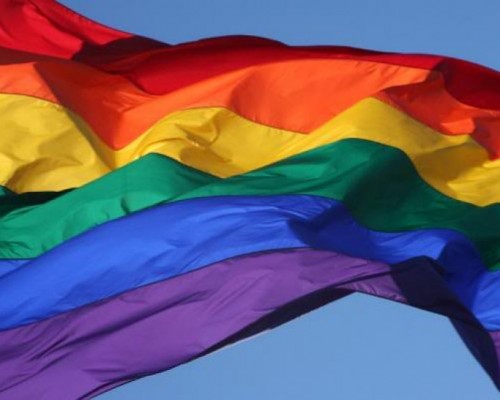
Dear students,
Bet you didn’t think about Corona when you bought that ‘The future is queer’ t-shirt. You imagined a 2020 of Marches and Milkshakes, not a digital mint tea in old sweatpants. But here you are, queerantining with housemates, lover(s), or alone. Counting the centimeters every time you run into another human in the kitchen. And you are on Zoom. You are on Zoom so much, you started having Zoom headaches. When your wifi cuts off because a roomie is downloading, Zoom kicks you out. You only turn your camera on when you are sent to a breakout room.
You are on Zoom because you are in University, and Zoom is where your classroom is. On Mondays and Wednesdays, you meet me in that virtual space. I am your teacher. You stare at me while I activate you: break the ice, flip the class, play the course playlist. You engage with all your might, while your mom blends soup or the cat eats your hair. When I ask you to rate your energy levels on a scale of 1 (lowest) tot 10 (highest), you give me a 3 in the morning and a 6 in the afternoon. Sometimes, you withdraw.
You might not know it, but in the midst of this pandemic I am thinking about LGBTIQA+-inclusive education. As chair of VU Pride, VU’s campus pride network, I feel there is momentum to address necessary updates to our campuses, curricula and organizational cultures. Research suggests transgender and non-binary (TGNB) students worry about their safety on campus, struggle to have access to inclusive facilities such as gender neutral bathrooms, and do not always see their gender identity affirmed by faculty, peers or administrators (Goldberg and Kuvalanka 2019, Siegel 2019). Many LGBTIQA+-students report a need for inclusive and welcoming counseling services, but experience information barriers (e.g. Stewart and Kendrick 2019). Although the above draws from US-based research, I know students on Dutch campuses have these experience as well. Several of you have told me feeling uncomfortable going to see a university-affiliated counselor or mental health professional, because you were not sure you could trust them to understand your situation. And many you have shared with me that professors teach outdated ideas about gender and sexuality, which lead to negative classroom experiences (Personal correspondence).
According to the latest research, you – my queer students – have ‘unique mental health vulnerabilities’ in this pandemic (Peterson, Vaughan et al. 2020, Salerno, Williams et al. 2020). LGBTIQA+-inclusive higher education is therefore more important than ever. It is absolutely vital that your gender is affirmed in class or in correspondence, that your university supports you on Pride or Coming Out Day, that your community’s history and contributions to science are reflected in course material, that you have role models among staff, and that gender and sexuality topics taught to you represent the latest scholarly insights.
But, dear students, the tide is slowly turning. And that is not in the least because of your own efforts. LGBTIQA+ students are increasingly mobilizing to transform current educational climates (Goldberg, Smith et al. 2020). After Black Queer & Trans Resistance Amsterdam organized the Dam protest and introduced anti-racist intersectional activism to the country’s mainstream, universities have finally promised to critically look at their curricula. My university, Vrije Universiteit Amsterdam, issued a statement co-signed by all deans pledging to rigorously evaluate our organization and curricula, and move towards decolonization of the institution. In light of previous persistent calls by activists this is a slow promise, but nevertheless a necessary one. I acknowledge the hard work that yet has to get done to decolonize the university at all levels of the institution. But in that transformative process, gender and sexuality should be integral factors, just as efforts to establish LGBTIQA+-inclusive pedagogical environments and practices should account for the diverse needs of LGBTIQA+- students based on intersections of ethnicity, class, religion, and ability (e.g. Mahoney, Cuellar et al. 2019, Nichols and Stahl 2019, Duran, Pope et al. 2020).
Back in the Zoom class, I am concerned about how long this Corona situation will last. Your energy ratings decline by the week. And then I see one of you has added pronouns to their Zoom name: she/they. Another one of you unmutes, and asks why the article defines gender in such a binary way. I discover someone added a queer-feminist punk band to our course playlist. We have a long way to go, but your minds, my dear students of all genders and sexualities, will be absolutely essential to improve our higher education institutions. I can’t wait.
Maaike Muntinga
Maaike Muntinga is assistant professor at the department of Ethics, Law and Humanities at Amsterdam UMC, and chair of VU’s campus pride network VU Pride
References
Duran, A., et al. (2020). “The necessity of intersectionality as a framework to explore queer and trans student retention.” Journal of College Student Retention: Research, Theory & Practice 21(4): 520-543.
Goldberg, A. E. and K. Kuvalanka (2019). “Transgender graduate students’ experiences in higher education: A mixed-methods exploratory study.” Journal of Diversity in Higher Education 12(1): 38.
Goldberg, A. E., et al. (2020). “Trans activism and advocacy among transgender students in higher education: A mixed methods study.” Journal of Diversity in Higher Education 13(1): 66.
Mahoney, A. D., et al. (2019). Intersectionality and Higher Education: Identity and Inequality on College Campuses, Rutgers University Press.
Nichols, S. and G. Stahl (2019). “Intersectionality in higher education research: a systematic literature review.” Higher Education Research & Development 38(6): 1255-1268.
Peterson, Z. D., et al. (2020). “Sexual identity and psychological reactions to COVID-19.” Traumatology.
Salerno, J. P., et al. (2020). “LGBTQ populations: Psychologically vulnerable communities in the COVID-19 pandemic.” Psychological Trauma: Theory, Research, Practice, and Policy.
Siegel, D. P. (2019). “Transgender experiences and transphobia in higher education.” Sociology Compass 13(10): e12734.
Stewart, B. and K. D. Kendrick (2019). ““Hard to find”: information barriers among LGBT college students.” Aslib Journal of Information Management.

